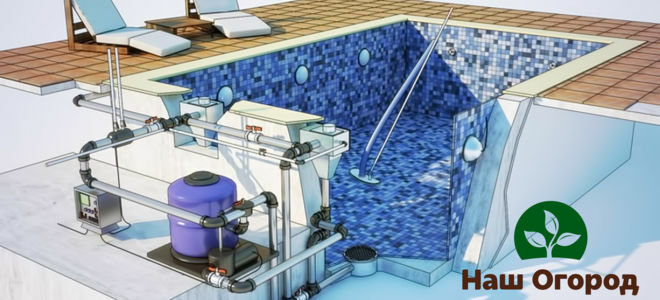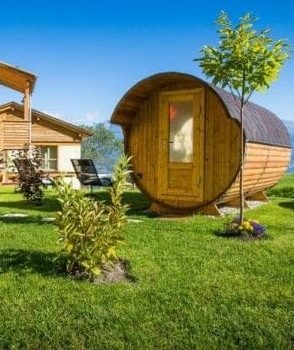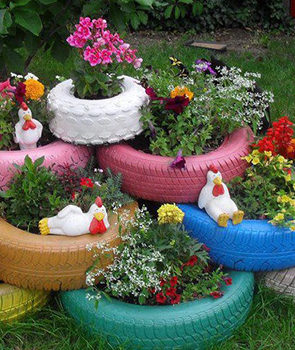How to care for your garden pool
Whichever garden pool you choose for your garden, you have two guarantees. First, you'll have a cool place to cool off when the summer heat hits. Second, by following a few basic rules, you will save crystal clear water, which will be pleasant for you to swim in. Indeed, without proper maintenance, the life of a garden pool is greatly reduced and the water in which you bathe becomes more polluted, which in turn reduces the pleasure of swimming. Just remember some basic principles and find the right helpers - then you can definitely count on a new way of summer vacation. How to do it?
Prevention pays off. This phrase also applies to the maintenance of the pool in the garden. By keeping dirt out of your pool, you will save on maintenance costs. But this is not 100% protection that would allow you to avoid other worries.
Of course, you should take a shower before entering the garden pool. Children are especially creative in this regard, so it is worth observing and teaching them this principle. In the absence of hygiene, you may not notice grass or clay on your body. The remains of oily sunscreen must also be rinsed off the skin beforehand. All of these impurities help algae to form and create turbidity in the water.
Another source of pollution to a decorative garden pool that can be effectively prevented is the leaves of the surrounding trees. If it is necessary to position the pool next to them, it is recommended to cover the pool when not in use. Many potential contaminants travel through the air and a pool cover is a very effective barrier for dirt to enter the pool.

Prevention is essential, but cleaning your garden pool is just as important. It is divided into two main types - mechanical and chemical cleaning. For mechanical removal of dirt, a special mesh is used as a base, which easily captures insects, leaves and similar impurities. The equipment of any pool should have a sand filtration function. The pump continuously draws water from the pool and purifies it through a usually two-stage filtration system. The water then returns to the pool. Sand filtration is included on hot summer days when there is no one in the pool. In cases where the pool is often used, it is advisable that the filtration works for several hours a day. It is also recommended to purchase a special vacuum cleaner for mechanical cleaning of the pool bottom.

Mechanical cleaning can significantly improve the quality of the water in the ornamental garden pool. However, cleaning chemicals are just as important. Misuse or lack of chemicals is a common cause of water purity problems. It is important to monitor two indicators - the pH value of the water and the amount of disinfection in the pool. The recommended pH for garden pool water is between 6.8 and 7.2, if the pH falls outside this range, it must be returned to it with suitable preparations. Higher pH levels result in mineral turbidity. A low level promotes corrosion on metal surfaces.
The spreading problem is the disinfection of water in the pool in the garden area, since tens of thousands of potentially harmful microorganisms are formed in the water. To maintain clean and hygienically safe water throughout the season, it must be regularly cleaned and treated with disinfectants.Chlorine-containing products are used as a standard, which should be present in the pool at a concentration of 0.3-0.6 mg per liter of water. An alternative are so-called chlorine-free products, thanks to which you can avoid the unpleasant smell of chlorine. In addition, these products do not irritate more sensitive skin, mucous membranes or eyes and are more environmentally friendly. Chlorine-free disinfectants suitable for kindergarten pools are also available on the market.
It is advisable to treat the garden pool with so-called algicides, that is, preparations for the destruction of algae and other microorganisms. The spores for the algae to thrive are constantly entering the pool along with dust, wind and rain. Warm water and sunlight create ideal conditions for their development. Also popular are flocculants, which quickly and easily purify the water from unpleasant hazards caused by soil particles, dyes, or organic compounds. Flocculants cause them to flocculate, forming larger flakes, which then trap the filter or evacuate them.
You should be aware that if the water pollution in the garden pool exceeds a certain level, cleaning will no longer help. In these cases, it is better to drain the pool, treat it from precipitation and rinse it with clean fresh water.




